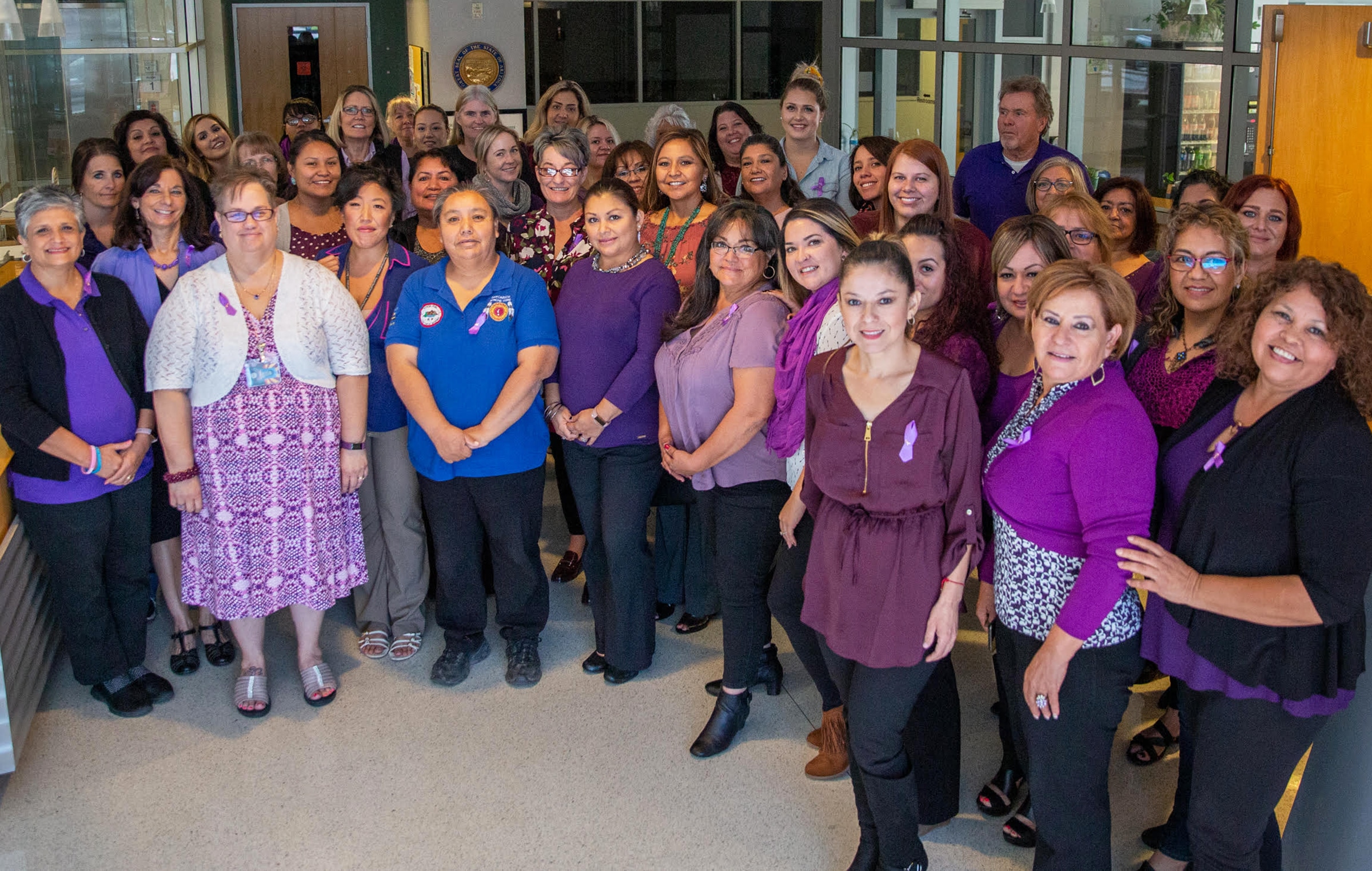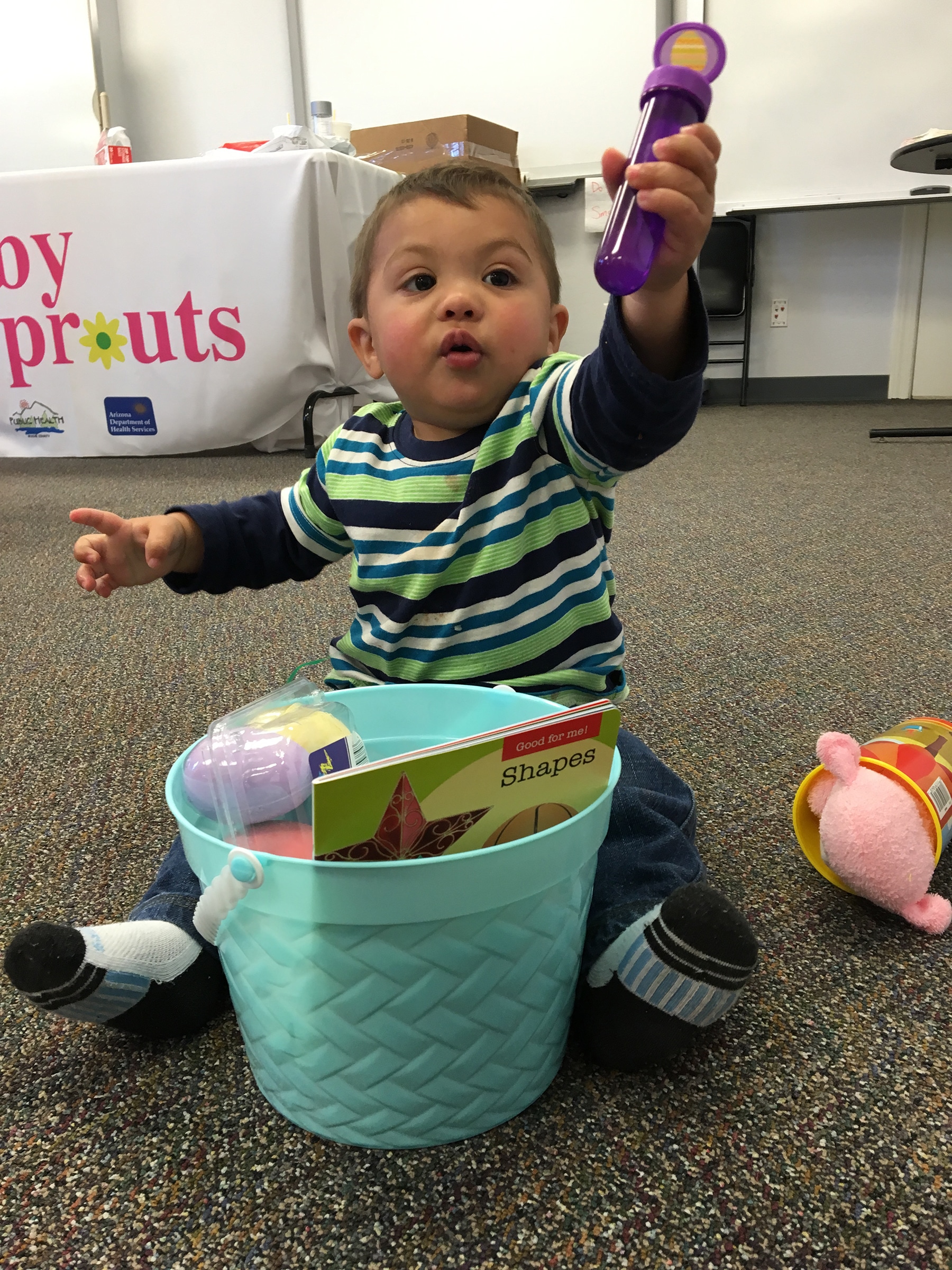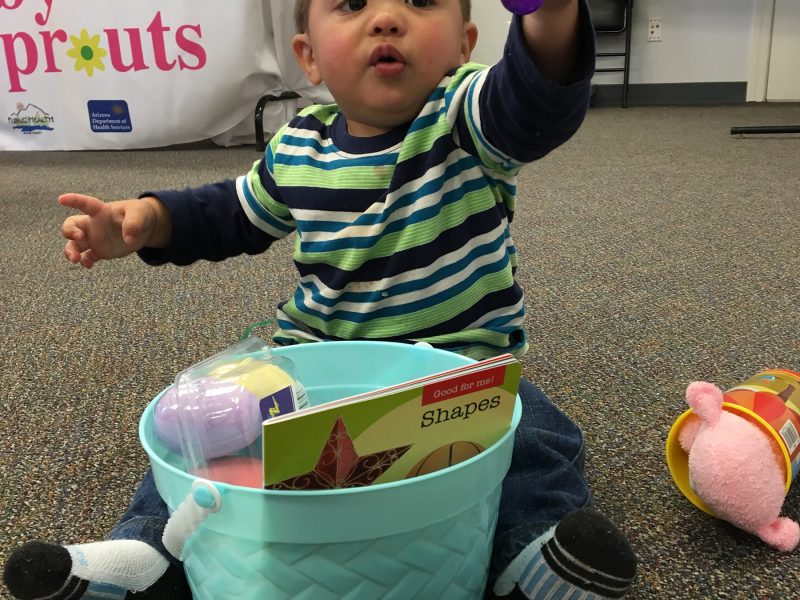Community health workers improve birthweight of newborns through the Arizona Health Start Program, researchers find

Through a comprehensive study of the last 10 years, researchers from Northern Arizona University and University of Arizona found that pregnant women and mothers enrolled in Arizona’s Health Start Program, which employs community health workers (CHWs) to conduct home visits, have lower rates of low birthweight and preterm newborns than women who did not participate in Health Start.
The peer-reviewed BMJ Open recently published their results titled, “Addressing maternal and child health equity through a community health worker home visiting intervention to reduce low birthweight: retrospective quasi-experimental study of the Arizona Health Start Program,” in the June issue.
For more than 25 years, the Arizona Health Start Program has offered CHW led home visiting, education, and advocacy support to improve maternal and child health outcomes among medically and socially high risk, pregnant women and mothers with children under age 2.”
“The Arizona Health Start Program is a public health focused intervention [program] developed specifically to meet the unique needs of Arizona women, children and families that can improve birthweight and preterm outcomes among ethno-racially, socioeconomically, and geographically diverse mothers and infants of Arizona,” said Sara Rumann, Health Start program manager who has led the program for more than a decade.
The Arizona Department of Health Services – Bureau of Women’s and Children’s Health operates Health State in partnership with county and tribal health departments and community health centers across Arizona. The program is funded through Arizona lottery funds.
Health Start program findings
The evaluation team analyzed Health Start enrollment data and state birth certificate records from 2006 to 2016 to assess the program’s impact on maternal, infant and child health outcomes. They compared records from 7,212 women enrolled in Health Start to 53,948 women not enrolled in the program.
The study found that Health Start participation was associated with significantly fewer preterm births among teens, fewer low birthweight births among American Indian mothers and mothers with a pre-existing health risk such as diabetes or hypertension, and fewer very low birthweight and extremely low birthweight births among Latina mothers.
Through their evaluation, the researchers found that these outcomes are rare occurrences, but the reduction in adverse birth outcomes result in substantial economic savings. For example, the early healthcare costs associated with a surviving extremely low birthweight infant is approximately $202,700 compared to $1,100 for a healthy infant.
While there were only 16 fewer cases of extremely low birthweight among Health Start mothers compared to women not enrolled in Health Start, this reduction translates to an estimated cost savings of $3.2 million for the state. The researchers note that these costs, when they occur in already disadvantaged populations such as Health Start participants, would likely magnify and multiply over time.
Primary investigator Samantha Sabo, associate professor in Northern Arizona University’s Center for Health Equity Research and Department of Health Sciences, said that the results show that CHW-led, community-based programs can successfully and significantly improve the health of families and their newborns.
“We found that CHWs, with their vast experience, inherent wisdom and unique ability to connect with families in a safe, non-judgmental way, is a key component in reducing the risk of low, very low, and extremely low birthweight and preterm birth and could improve birth outcomes statewide, especially among women and children at increased risk for MCH inequity,” Sabo said.
Researchers are Sabo, Patrick Wightman, Center for Population Science and Discovery, University of Arizona; Kelly McCue, senior research coordinator for CHER and primary research lead for the project; Matthew Butler, Department of Economics, Brigham Young University; Vern Pilling, Center for Biomedical Informatics and Biostatistics, University of Arizona; Dulce Jiménez, research coordinator for CHER; Martín Celaya, Bureau of Women’s and Children’s Health, Arizona Department of Health Services; and Rumann, Bureau of Women’s and Children’s Health, Arizona Department of Health Services.
Community health workers integral to Health Start success

To enroll in the program, Health Start participants must have at least one or more medical risk factor — such as previous adverse birth outcome, young maternal age, or pre-existing chronic disease — and social risk factor — such as domestic violence, lack of family or social support, or inconsistent or uncertain employment.
Trained CHWs conduct the Health Start Program home visits where, through CHW core competency and specialized MCH training, they connect clients to prenatal care and increase continuity of care during and after pregnancy. CHWs motivate and support their clients through behavior change activities that promote personal agency and self-efficacy and achieve the Health Start Program goals, which include reducing low birthweight.
Some of their many CHW activities include: • identifying, screening, and enrolling eligible women • providing perinatal and postpartum education and social support • providing referral and advocacy services • emphasizing timely immunizations and developmental assessments for children
During pregnancy, CHWs provide education to mothers, which includes perinatal nutrition, physical symptoms and changes, labor and delivery, and breastfeeding. They also assist them with accessing and enrolling in continuous perinatal care and follow-up for maternal behavioral health disorders, alcohol, tobacco, and drug cessation, and intimate partner violence.
Future plans
The research team is submitting their findings to the US Department of Health and Human Services – Administration for Children and Families – Home Visiting Evidence of Effectiveness (HomVEE). With approval from HomVEE, the Health Start program could become a federally recognized, evidence-based home visiting intervention.
“With HomVEE designation as an evidenced based intervention, Health Start would have the potential to be scaled to reach mothers and families far beyond Arizona and could be a trusted evidenced based CHW MCH home visiting intervention of great value to state Medicaid and health system payers” said Sabo.
“This recognition may provide guidance to other organizations planning to implement CHW-led maternal and child health programs, and serve as a reminder of the incredible work of CHWs in Arizona,” McCue said. “We hope that our results and anticipated HomVEE designation will encourage other organizations across the state, the southwest, and the country to employ CHWs to improve maternal and child health outcomes.”
